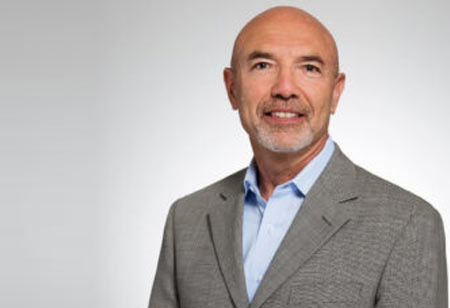Thank you for Subscribing to Healthcare Business Review Weekly Brief

Whole-Body Healing: The Future of Addiction Recovery
Healthcare Business Review
Dr. Lawrence Weinstein is the Chief Medical Officer at American Addiction Centers, a national leader in evidence-based treatment for substance use and co-occurring disorders. With decades of medical experience, he has championed integrative approaches that address the biological, psychological and social dimensions of addiction.
It took far too long for society and even medical practitioners to recognize addiction as a brain disease instead of failure of character or willpower. Now it’s time for the next major shift in how we think about and treat substance use disorders, recognizing that addiction is a whole-body disease.
The future of addiction recovery must be integrative and cellular. Why? Because when we attempt to address SUDs without looking at factors like nutrition, inflammation and circadian rhythms, we’re ignoring the biological foundation of motivation and cognition.
We cannot isolate treatment to only the mind when true recovery occurs in the biological organism. The mind impacts the body and vice versa. Attempts to isolate and treat only the brain of an addicted patient are flawed and futile. Recovery occurs in the biological organism, not just in the mind.
Addiction: A Network-wide Disruption
Addiction affects the entire network of the body, causing neurochemical, immune, metabolic, circadian and nutritional disruptions. Unfortunately, treatment is too often limited to psychological care with little to no regard for system biology and all the ways that a person’s body is impacted.
For instance, let’s look at nutrition and its role in recovery. Nutrient deficiencies are common among those with SUDs. They negatively impact mood and immune function, yet nutrition is often an afterthought among treatment providers. When we consider that nutrients are raw materials for key neurotransmitters such as tryptophan and serotonin that are damaged by chronic substance use, it’s clear that proper nutrition is essential for long-term healing.
You can’t recover a mind in a broken body. Addiction is systemic, and so is healing.
Circadian rhythm, the body’s natural clock, is another biological factor that needs more attention in treatment. Addiction disrupts the sleep-wake cycle, in addition to cortisol rhythm and hormone timing, all of which can lead to worsened fatigue, mood swings and increased risk of relapse.
The effects of addiction extend even further, from triggering neuroinflammation to depleting antioxidants. These effects cannot be ignored if we want our patients to experience full recovery. For example, those with depleted antioxidants often suffer from mitochondrial damage and impaired energy production, which may lead to excessive fatigue and problems with executive functioning. Worse yet, hormone production, specifically of cortisol and insulin, also gets dysregulated in those struggling with addiction, impacting mood, stress responses and motivation.
As the chief medical officer for a leading addiction treatment provider, I see every day the multifaceted ways in which SUDs impact patients, from malnutrition to insomnia. How can we expect our patients to recover when we leave so many biological factors unaddressed?
Moving Beyond Siloed Care
In most settings, care providers treat the symptoms of SUDs in silos, neglecting to collect or share the necessary data to gain the full picture of a patient’s system regulation. We don’t collect sleep data, we don’t measure nutrient levels, we ignore inflammatory biomarkers. Most addiction treatment models right now focus on symptom suppression like craving, withdrawal and relapse. This must change.
We must begin to look at the upstream drivers of dysfunction, such as micronutrient deficiency and neuroinflammation, rather than focusing solely on the downstream effects such as anxiety and drug-seeking. The brain doesn’t misfire for no reason. The system biologist would first ask why the brain is misfiring before attempting to treat the issue.
We must also recognize that addiction treatment is not one-size-fits all. Too often, care plans neglect a person’s genetic and metabolic diversity. With increased personalization and fewer silos, we can expect to see improved outcomes.
Rethinking Addiction—Again
We made major strides in reducing stigmas and advancing substance use disorder treatment when we reframed addiction as brain disease. It’s time now to push the definition again so that we can progress even further.
From a system biology lens, addiction is not so much a brain disease but a multi-system collapse. We cannot ignore the fact that our systems are intricately interconnected. Think of the body as an orchestra. If one instrument is out of tune or off the beat, it will throw off the entire symphony regardless of how perfectly the other musicians play.
Healing is Systemic
The idea that the mind and the body are two separate entities that can be treated in isolation is pervasive, and it’s incorrect. We urgently need to stop treating symptoms in isolation and start restoring the underlying biological networks that support long-term recovery.
Ideally, recovery protocols would include nutritional rehab, gut restoration, circadian alignment and anti-inflammatory strategies. We would screen for biological impairment as early as we screen for psychiatric ones, and we would create integrated treatment plans that prioritize proper nutrition, restoration of natural circadian rhythms, inflammation reduction and other goals that are essential to long-term recovery from addiction.
You can’t recover a mind in a broken body. Addiction is systemic, and so is healing. Let’s move beyond symptom management and start building resilient biologically supported recovery, one cell, one rhythm and one system at a time.









